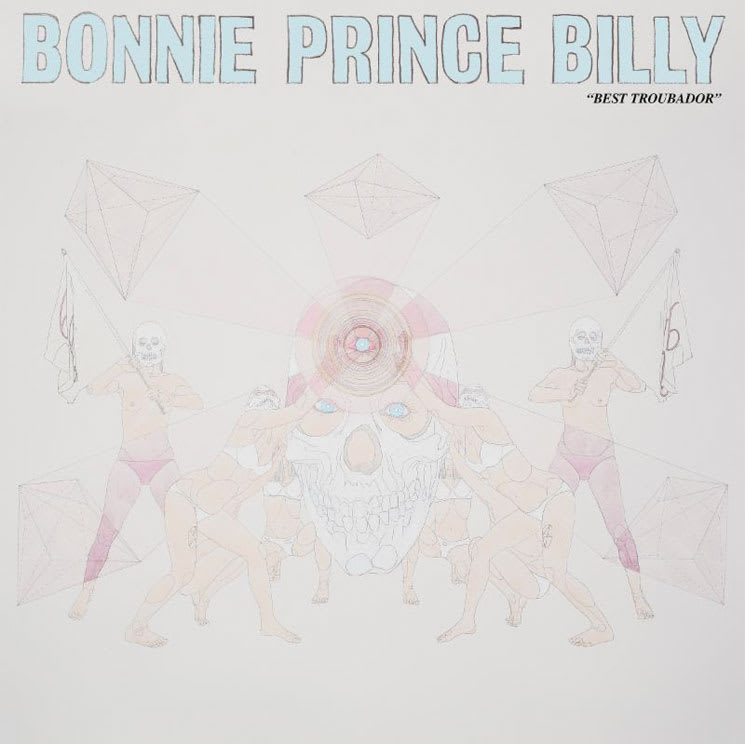On first listen, I was frustrated that Will Oldham took over Merle Haggard's tunes without attempting his trademark voice. But if we think of this album as an example of the respect that Oldham has for the Hag, part of that respect becomes matching forms and matching dialogue. Part of the formal skill of both Haggard and Oldham is a care to note where the artifice of performance begins, and where persona becomes personhood.
This tension between persona and personhood can be seen in choosing genuinely moving, intimate story-songs over the greatest hits. This choice is deepened by how the album finds a place where the roughness of Oldham's voice pushes into a lush, jazz-inflected production.
But the most surprising thing is how Oldham handles Haggard's autobiographical themes, especially in the songs "Haggard" and "Leonard." Oldham's recording of "Leonard," an intricate tale of someone who became famous under a pseudonym, and who got in trouble trying to play both names against the middle, is a dazzling house of mirrors: Oldham playing Bonnie 'Prince' Billy playing Palace Brothers playing Haggard the writer playing Haggard playing the performer, singing a song whose subject itself is pseudonymous. How he sings Haggard is really Oldham telling us what he got from country music, placing himself within the genre. (Johnny Cash might have placed him there first, with his recording of "I See A Darkness.")
Though it might seem strange that Oldham recorded the first major tribute to Haggard, the careful and well-thought-out working through of the master's themes makes deliberate sense.
(Drag City)This tension between persona and personhood can be seen in choosing genuinely moving, intimate story-songs over the greatest hits. This choice is deepened by how the album finds a place where the roughness of Oldham's voice pushes into a lush, jazz-inflected production.
But the most surprising thing is how Oldham handles Haggard's autobiographical themes, especially in the songs "Haggard" and "Leonard." Oldham's recording of "Leonard," an intricate tale of someone who became famous under a pseudonym, and who got in trouble trying to play both names against the middle, is a dazzling house of mirrors: Oldham playing Bonnie 'Prince' Billy playing Palace Brothers playing Haggard the writer playing Haggard playing the performer, singing a song whose subject itself is pseudonymous. How he sings Haggard is really Oldham telling us what he got from country music, placing himself within the genre. (Johnny Cash might have placed him there first, with his recording of "I See A Darkness.")
Though it might seem strange that Oldham recorded the first major tribute to Haggard, the careful and well-thought-out working through of the master's themes makes deliberate sense.
